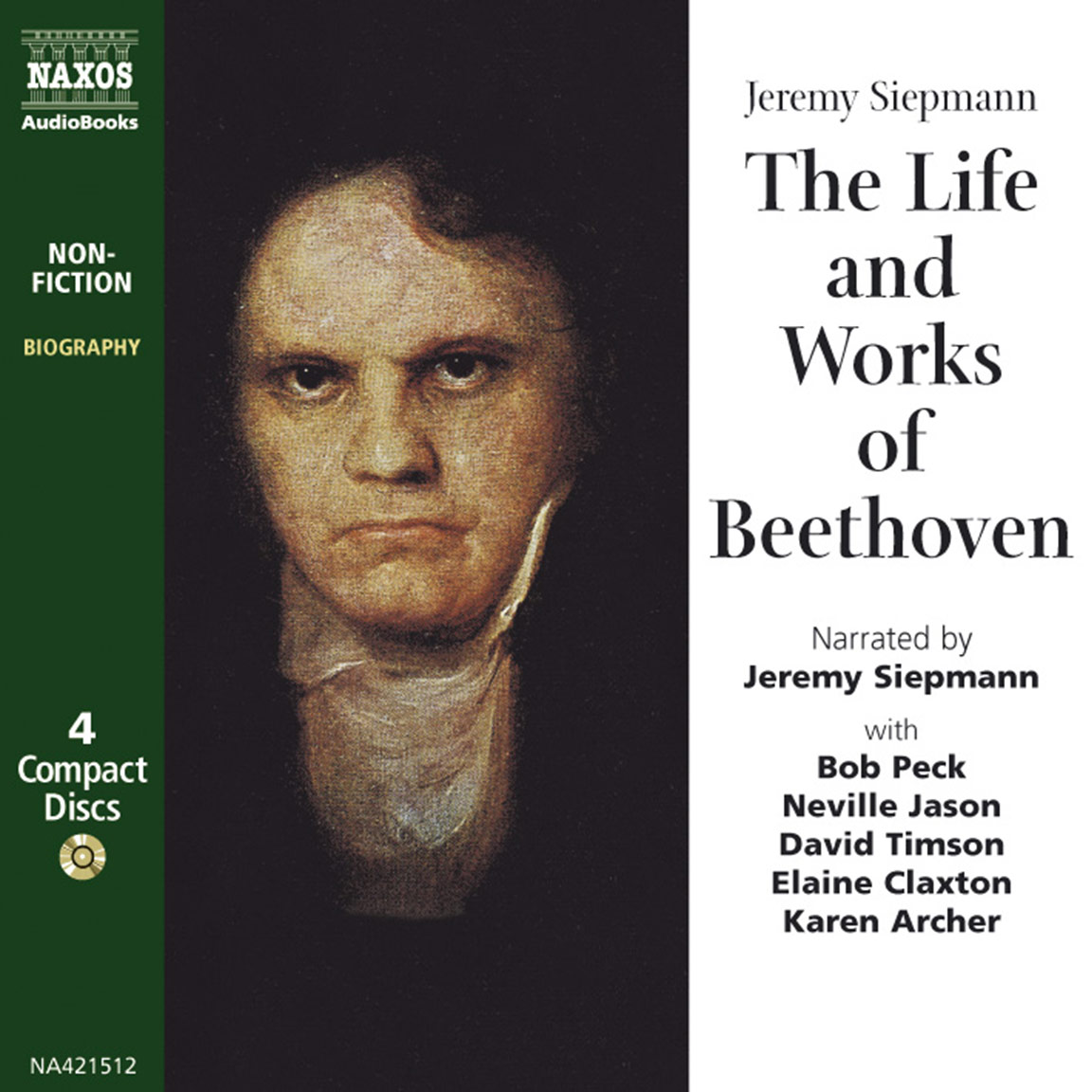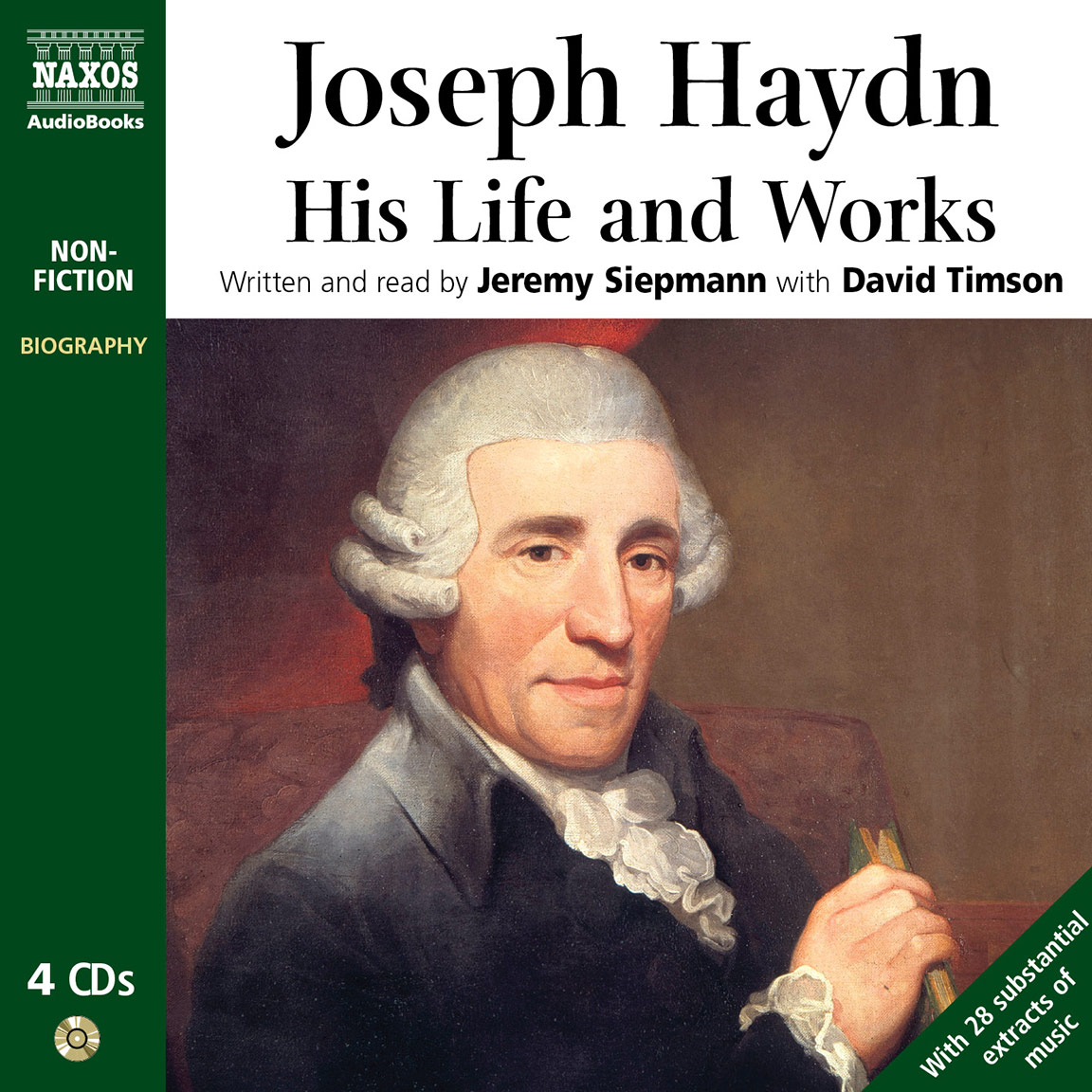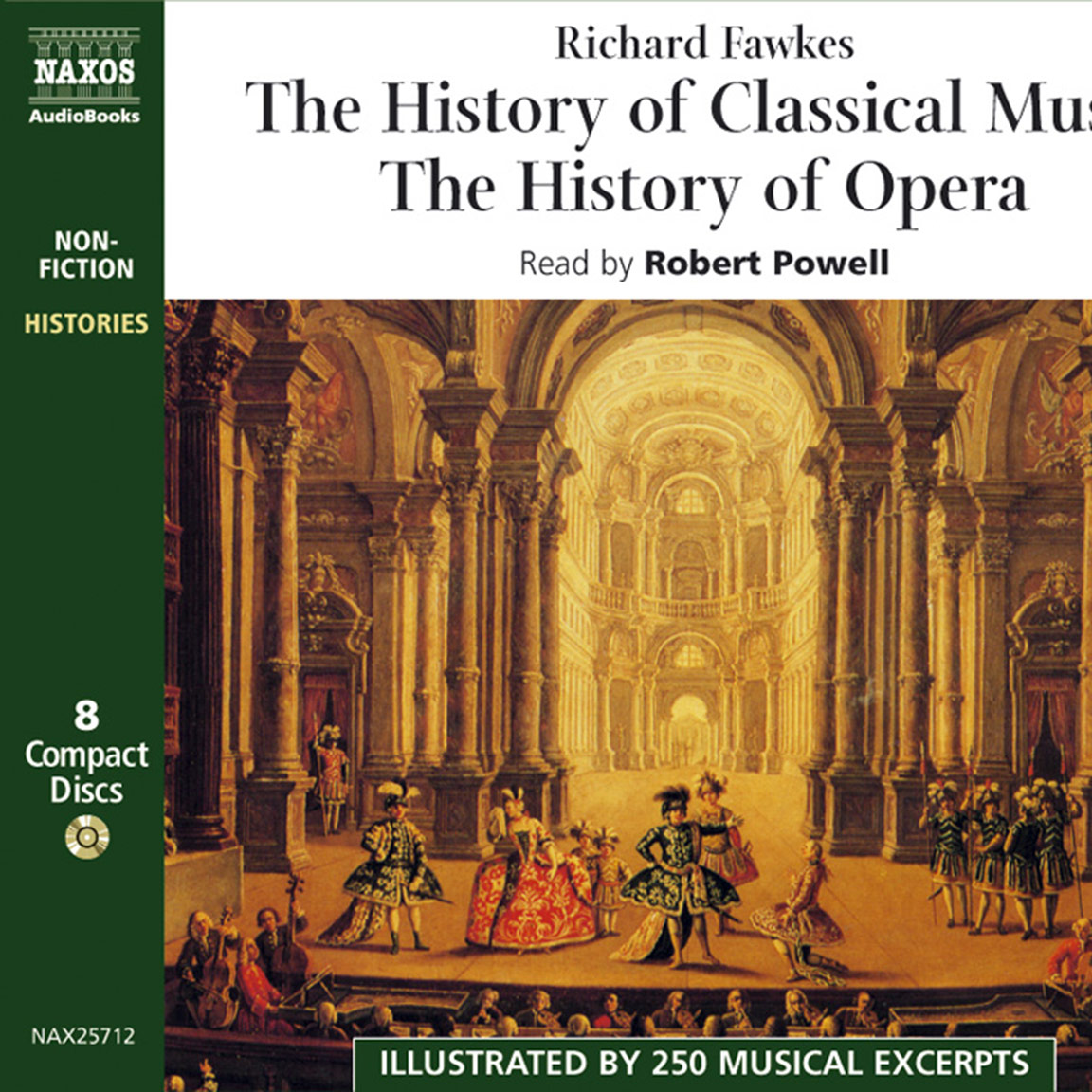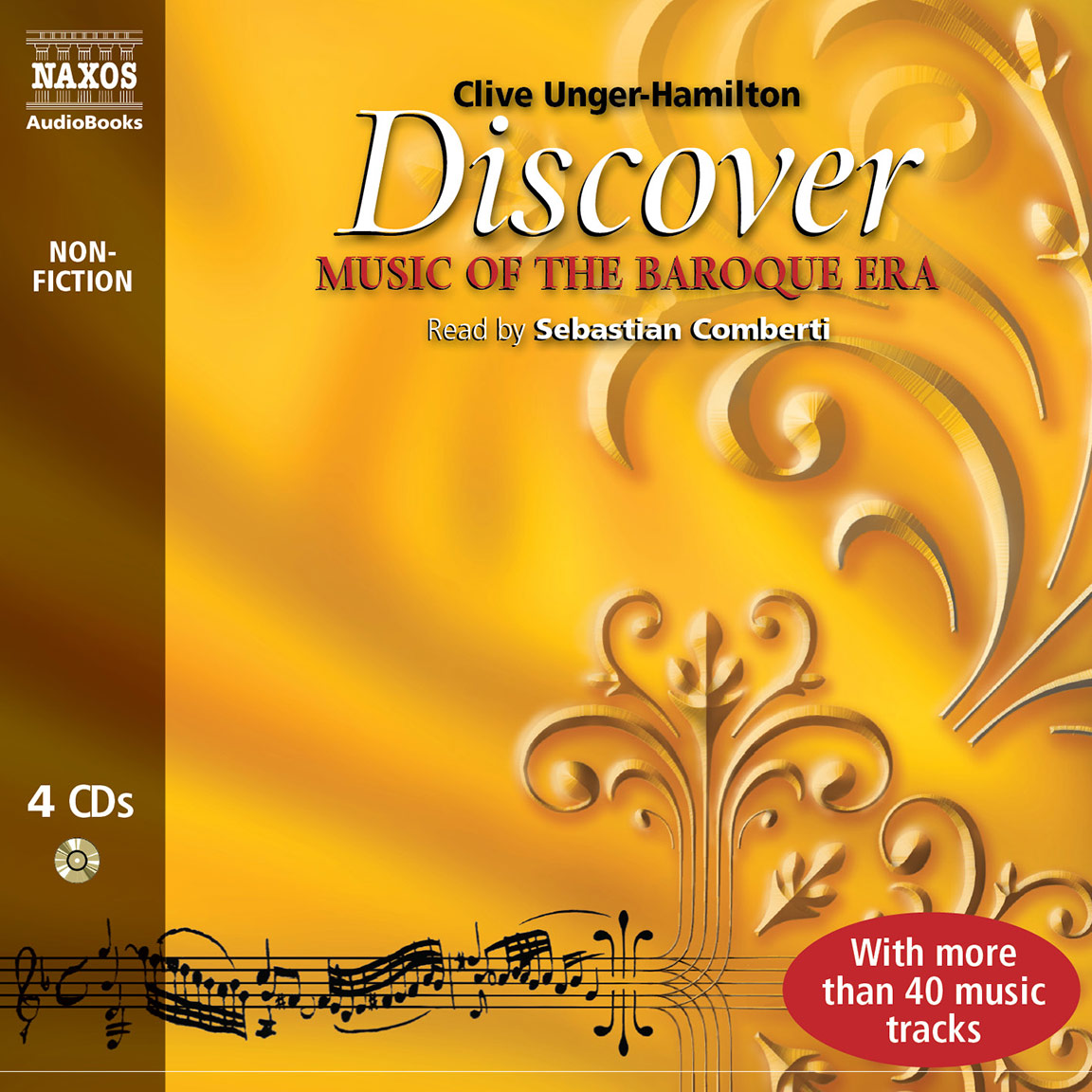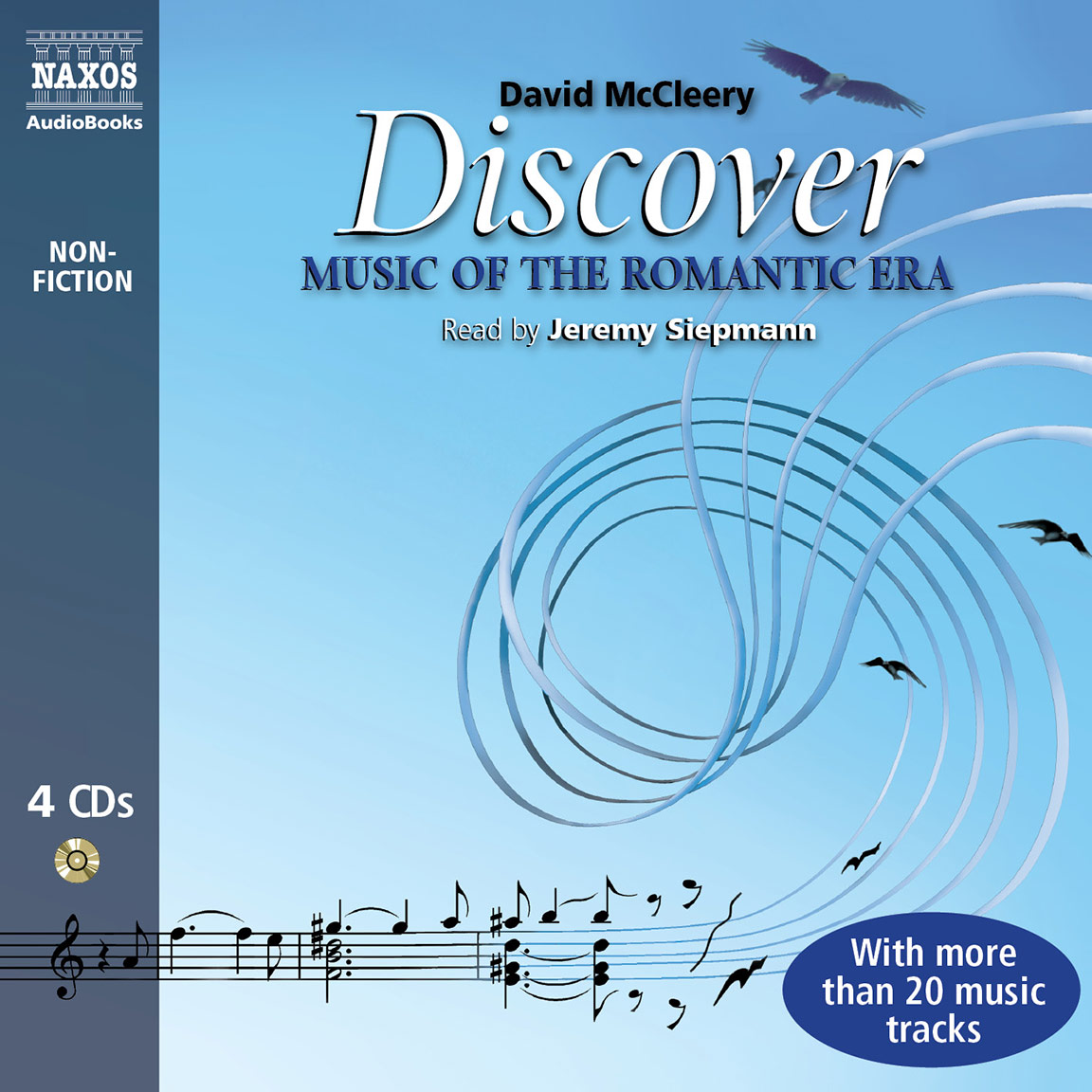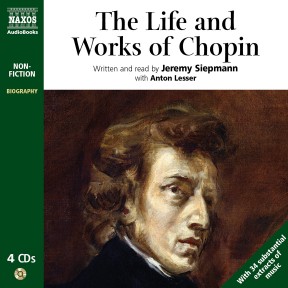
Audio Sample
Jeremy Siepmann
The Life and Works of Chopin
Read by Jeremy Siepmann with Anton Lesser
unabridged
Fryderyk Chopin is the pianist-composer par excellence. Regarded as one of the most mesmeric performers of his day, he lives on in his music – his waltzes, mazurkas, études, preludes, nocturnes, three piano sonatas, two piano concertos and much more. Here, his life, from his birth in Poland, his famous affair with the French writer George Sand, and his death at the age of 49 in Paris, is told with his music featuring prominently.
-
Running Time: 4 h 57 m
More product details
Digital ISBN: 978-962-954-954-1 Cat. no.: NA445612 Download size: 145 MB BISAC: BIO004000 Released: February 2010 -
Buy on CD at Downpour.com↗Listen to this title at the Naxos Spoken Word Library↗
Due to copyright, this title is not currently available in your region.
You May Also Enjoy
Reviews
This is the first of what is bound to be a stream of biographies celebrating the bicentenary of the composer’s birth – but none, I bet, will include as much if any of the music. At least half this audio is devoted to the works, played with great passion and even greater panache by Turkish virtuoso Idil Biret. Everyone knows about Chopin’s affair with George Sand, but I hadn’t realised what a bitch she was towards the end, mocking his pain and accusing him of hypochondria. Fascinating older women, even if they’re famous, sexy, clever and French, have their disadvantages. The story about Poland’s national treasure penniless, alone and close to death in 1848, being taken to Edinburgh by rich, well-meaning patrons and seeking out a Polish family to talk to in his own all-but-forgotten native tongue, is heartbreaking. Just like his nocturnes.
Sue Arnold, The Guardian
More than any musician or composer in history, Fredrick Chopin ‘owned’ the piano as an instrument, and made it sing. His fascinating life from prodigy to tragic death by consumption at age 39 is chronicled in The Life and Works of Chopinby Jeremy Siepmann, who also narrates, (with actor Anton Lesser reading excerpts from Chopin’s letters). The audiobook intersperses biography with a wide sampling of music in such a way that the listener is beguiled into visualizing that bygone era in Paris when Romanticism flowered with imaginative, new melodies and tonal colors grown out of folk tunes and the symmetry of a classical past. Words fail to evoke the timeless and unique beauty of Chopin’s creations then, which were not only among the greatest works for keyboard ever composed, but also the most universal. The story behind it all – including Chopin’s unusual life and loves – is an intriguing snapshot of early 19th Century France, yet its distance in time shrinks to nothing with such a musical score as accompaniment. (As a companion video, we recommend the movie Impromptu, which starred Hugh Grant as Chopin.) A free thinker, shy and modest, Chopin was an unrivaled poetic genius who evolved, from nowhere, a new style of playing with a gift for composition that was boundless. His was art, not for art’s sake, but for the heart’s sake. Chopin’s own words tell us why: ‘Bach is like an astronomer who, with the help of ciphers, finds the most wonderful stars. Beethoven embraced the universe with the power of his spirit. I do not climb so high. A long time ago I decided that my universe will be the soul and heart of man.’
Jonathan Lowe, burjreview.blogspot.com/
Jeremy Siepmann, one time Head of Music at BBC World Service and a life time teacher, broadcaster and author, has devoted himself to the cause of classical music. Naxos has already issued his audiobooks on Haydn, Beethoven and Baroque music and now we have the heart rending story of Frederic Chopin 1810–49. Siepmann’s graphic and moving biographical narrative is illustrated by Anton Lesser’s readings of letters and other historical documentary evidence (together with contributions by Neville Jason, Elaine Claxton and Karen Archer).
It is all here, from his early struggles for recognition in his native Poland to later triumphs at Vienna, Paris as leading figure in the salons. Here he was to meet Liszt who fatefully introduced him to Madame Dudevant (George Sand) in 1836. Chopin enjoyed (if that is the word) a tempestuous relationship with her until 1847. He was to receive a triumphant reception in this country, with sensational appearances at London, Manchester, Edinburgh and Glasgow. This arresting and moving story is lavishly illustrated throughout with a vast array of Chopin’s music played by Idel Biret. This beautiful set of 4 CDs is biographically led. The music here and there is gracefully faded. The wonder and range of the creative artistry remains dazzling and refreshing.
Chopin created exclusively for the piano, I’m convinced of that. He may have drawn inspiration from elsewhere – Mozart, Weber, John Field as well as the singing, arching legato of Bellini and Donizetti and the traditional dances of his native Poland – but his true voice was essentially through the piano keyboard. Throughout his creative career he was refining and perfecting his art as he further absorbed insight from the study of J. S. Bach and Cherubuni. The range of expertise he calls for is fascinating as much of his output can be managed by non experts yet at the height of powers only the virtuoso can make Chopin speak and dance and sing in his true voice. And even here skill alone is never enough. Because his genius is unique it takes a unique soloist to find him, bravura playing such as wins applause and prizes today or sentimentalizing of the classics (also in vogue) just cannot deliver the heart and soul. This is the beautiful sort of music we sometimes hear in dreams. Andre Gide had it when he wrote: ‘…everything should be made homogenous, so that the melody may remain enveloped in the friendly atmosphere created by the other voices, themselves evoking a continually pulsating, but immaterial landscape’.
This took me back. The dear lady who taught me German used to play Chopin to me if I had done well. One Friday afternoon, my mastery of the Plu Perfect Subjunctive earned me the 24 Preludes. ‘Chopin was the pianist’s pianist’ she said, as she sat at my dad’s upright. But George Sand was a complete and utter bitch.
Robert Giddings, Tribune
Chopin wrote the most romantic music ever composed. Thirty-four extracts are included here, the sensitive Nocturnes and Etudes and the Polish Mazurkas, entwined with his vividly told life-story. His long and rewarding affair with George Sand (which ended in illness and tears) and their miserable winter in Majorca are fascinating. So are his physical suppleness (he had ‘boneless fingers’ and could place his legs around his shoulders), his daily hairdressing, his flight from cholera, and the dreary teaching necessitated by his constant money worries.
Rachel Redford, The Oldie
Booklet Notes
It’s strange but true that Chopin, while writing some of the most romantic music ever composed, felt himself out of sympathy with almost every aspect of the Romantic movement (the only two composers he loved unreservedly were Mozart and Bach). His most notable musical contemporaries, on the other hand – Liszt, Schumann, Berlioz, Bellini, Meyerbeer, and to a lesser extent, Mendelssohn – not only subscribed to Romanticism, they virtually invented it (though that honour, if we’re to be properly inclusive, would probably have to be shared by Beethoven, Weber and Schubert). They all had in common the time in which they lived (though only Chopin grew up on the periphery of the European heartland), but their responses to it could hardly have been more various.
Mendelssohn, Schumann, Chopin and Liszt were all born at around the same time – Mendelssohn in 1809, Chopin and Schumann in 1810, Liszt in 1811 – and all of them were pianists. The piano stood at the heart of the Romantic movement. Its popularity was unparalleled. It came in all shapes and sizes and was cheap enough, at the lower end of the financial spectrum, for almost every middle-class home to have one. And the Romantic movement was emphatically a middle-class phenomenon. Where Classical music, so-called, had once been an adornment of the ruling classes, and a well-manipulated agent of political distraction, it was now taken up by the rising bourgeoisie as a symbol of genteel prosperity and a badge of economic power. To an altogether new extent, music passed out of the palaces and into the marketplace. Composers were decreasingly dependent on aristocratic patronage. They now relied for their livelihood on the sales of their work, or, more commonly (as in Chopin’s case) on their income as teachers of the well-to-do.
His music, in
its overall tone,
in its ravishing
sonorities and
its highly emotional
expression, is
as romantic as
music gets
Music in the Classical era (roughly 1750-1820) was based on preconceived notions of order, proportion and grace. Beauty and symmetry of form were objects of worship in themselves and combined to create a Utopian image, an idealisation of universal experience. In the Romantic age, which lasted roughly from the death of Beethoven to the outbreak of the First World War, this was largely replaced by a cult of individual expression, the crystallisation of the experience of the moment, the unfettered confession of powerful emotions and primal urges, the glorification of sensuality, a flirtation with the supernatural, an emphasis on spontaneity and improvisation and the cultivation of extremes – emotional, sensual, spiritual and structural. Where a near-reverence for symmetry had characterised the Classical era, Romanticism delighted in asymmetry. Form was no longer seen as a receptacle but as a by-product of emotion, to be generated from within. While the great Romantic painters covered their canvases with grandiose landscapes, lavish depictions of atmospheric ruins, historical scenes, portraits of legendary heroes and so on, the great Romantic composers, Liszt, Berlioz and Wagner most of all, attempted similar representations – in sound, but not by sound alone. Notes, rhythms, tone colours, melodic fragments were consciously related to specific ideas, to characters and their development. Music took on an illustrative function to a degree never previously attempted. In its cultivation and transformations of folk music it became an agent of the nationalism that fired the souls of almost every composer of the time. Another feature of the romantic imagination was a taste for extravagance. Grand opera anticipated the Biblical spectaculars of Hollywood, and the symphony orchestra assumed gargantuan proportions.
To all or most of this, Chopin felt implacably opposed. Yet his music, in its overall tone, in its ravishing sonorities and its highly emotional expression, is as romantic as music gets. Chopin has won his continuous and undiminishing popularity through his crystallisation of emotions and states of mind which can be recognised and felt by everyone, from whatever background, throughout the westernised, indeed throughout the so-called developed, world, whatever its geographical placement. It was a part of his genius to do this, in most cases, without any recourse to exaggeration. In his music, emotions are never caricatured or overblown; the nationalism of his mazurkas, even of the most ‘military’ of his polonaises, is never jingoistic. There is nothing synthetic about his music. While never without sentiment, it’s never sentimental. Its sincerity is beyond reproach. His gift for melody was unsurpassed. His gift for harmonic colouration hardly less so. While he was a revolutionary, he was never self-consciously a futurist. He didn’t strive for originality; it was a by-product of his questing, experimental cast of mind. While the work of a man with an altogether exceptional intellect, his music is never self-consciously intellectual, much less academic. Unlike Liszt, he wrote a great deal of very fine music indeed which could be played by ordinary people. But he never condescended. That he also wrote some of the most difficult and virtuosic music ever written is another matter; but one closely related to the time in which he lived, which was a time of expansion, of aspirations to the superhuman, of a stretching of boundaries. Unlike most of the reigning virtuosos of the day, however, he was not competitive. He was not out to outdo Paganini. He was seized by the dream of infinite discovery, of expanding the boundaries of the known – and first, last and always, with expanding the expressive possibilities of the piano.
And he was the only piano composer who unwaveringly derived his aural inspiration from the intrinsic character of the instrument itself. All other important piano composers, especially after the example of Beethoven, have envisaged the instrument as a kind of surrogate (Brahms’s piano music is full of ‘horns’, Debussy’s full of ‘flutes’, Liszt’s of shimmering ‘string’ effects). And Chopin is the only great composer who wrote exclusively for the piano. Beethoven and Liszt, by contrast, repeatedly and deliberately wrote beyond the instrument’s capabilities, thus forcing the course of pianistic evolution. Chopin never does this. But his music is so perfectly conceived for the instrument that there is never the faintest hint of frustration. In a century entranced by transcriptions, arrangements, orchestrations etc., only Chopin’s music resists. All attempts to orchestrate his music have succeeded in lessening rather than enhancing its quality.
Notes by Jeremy Siepmann
